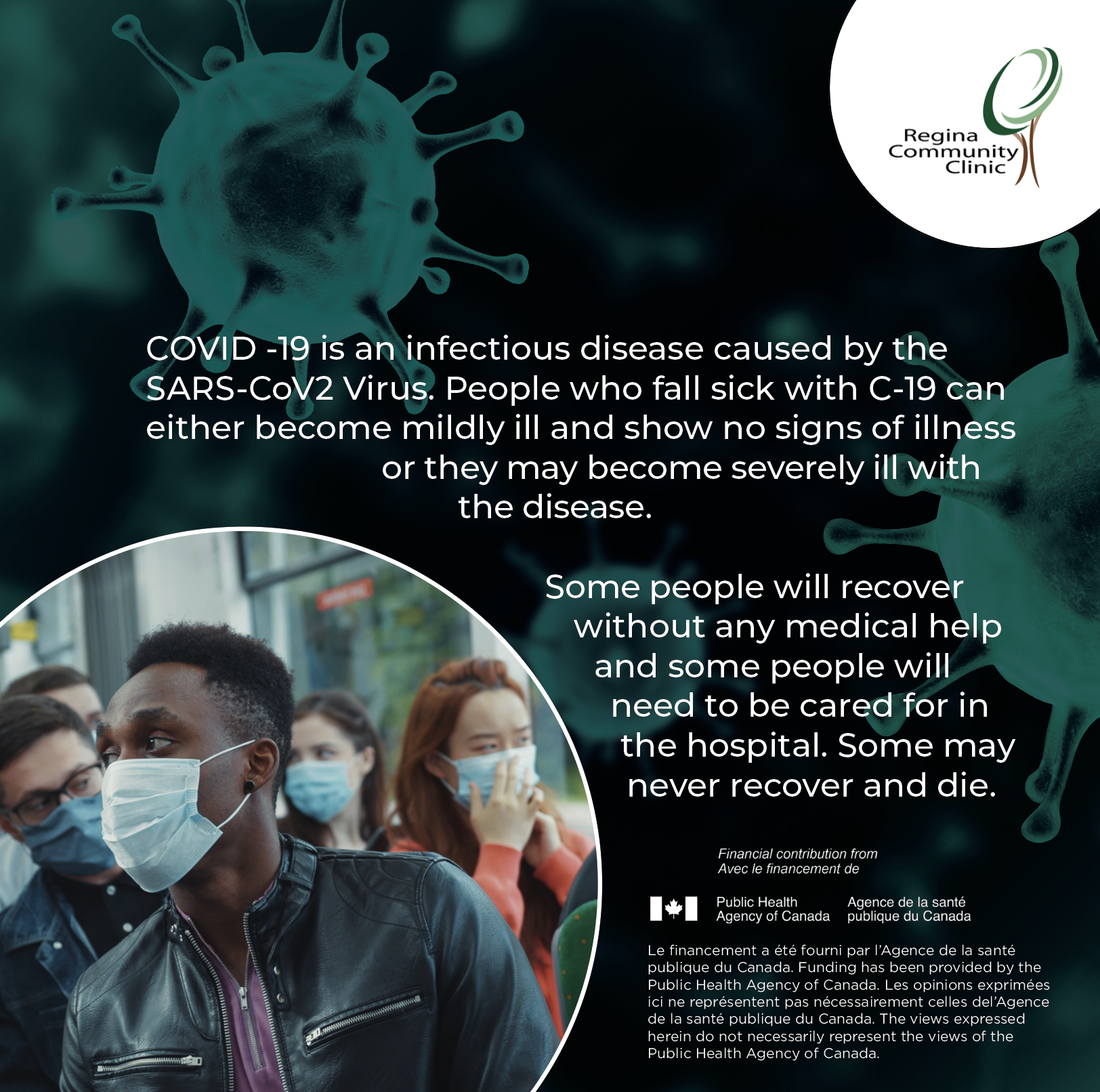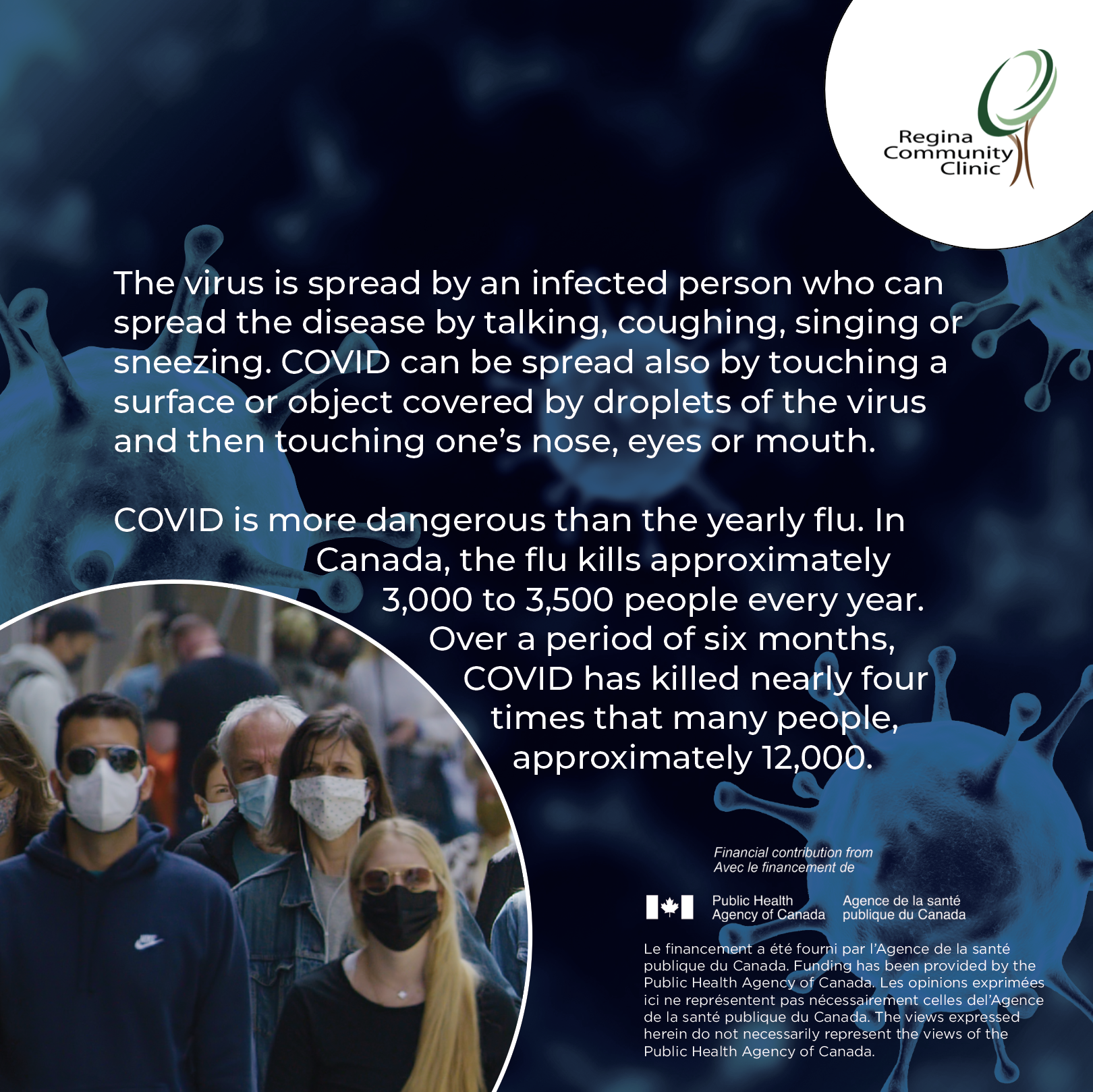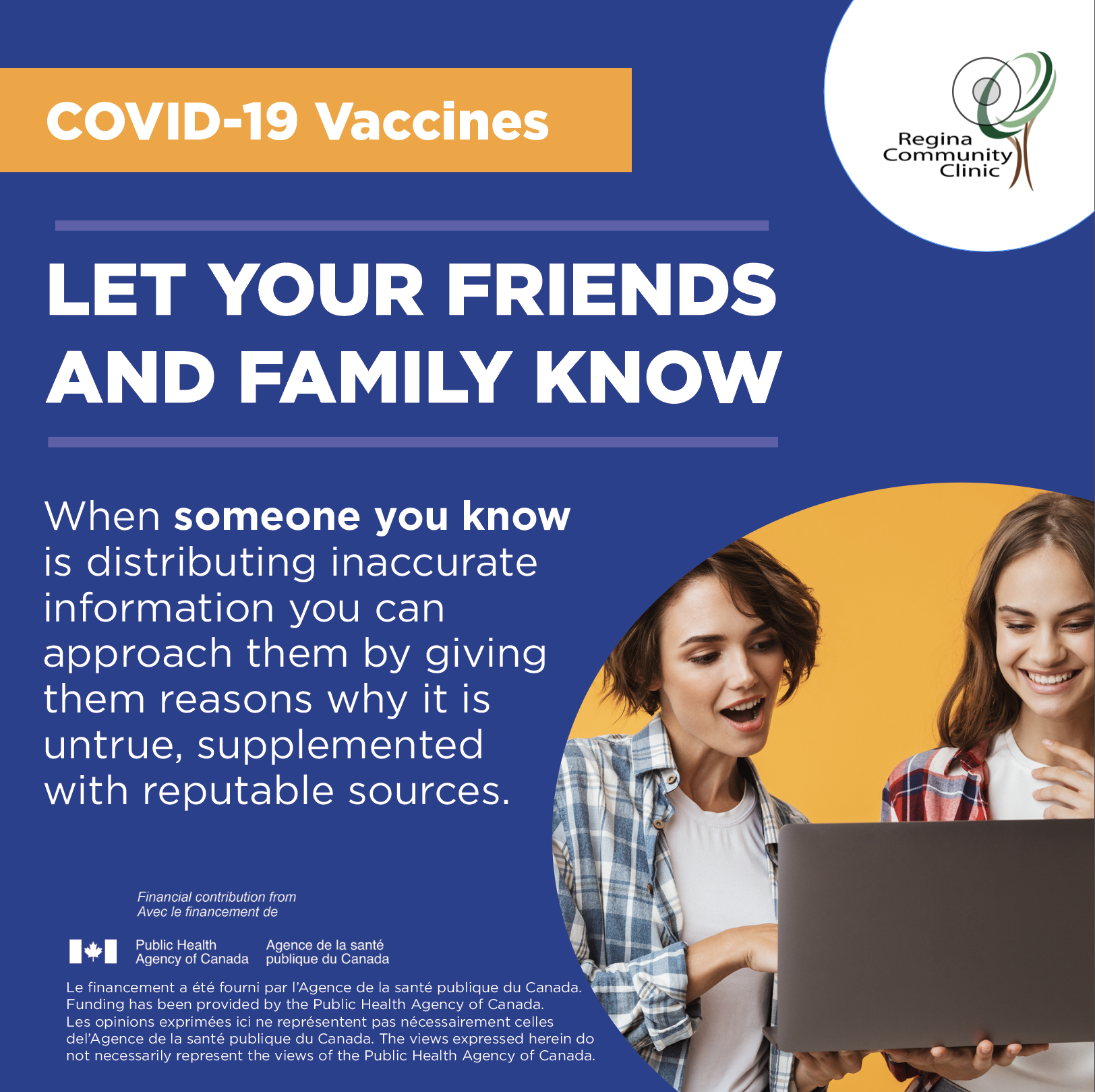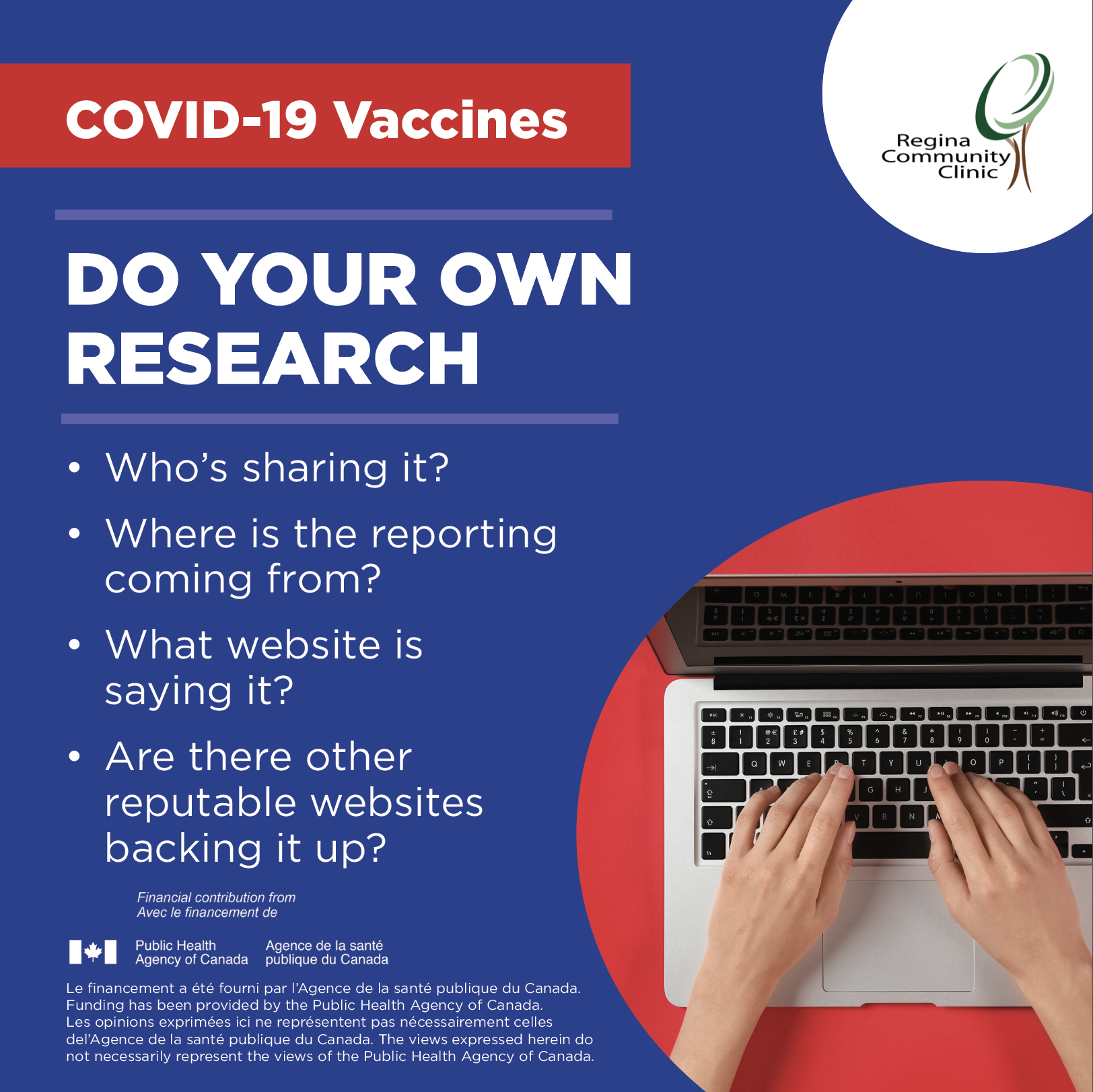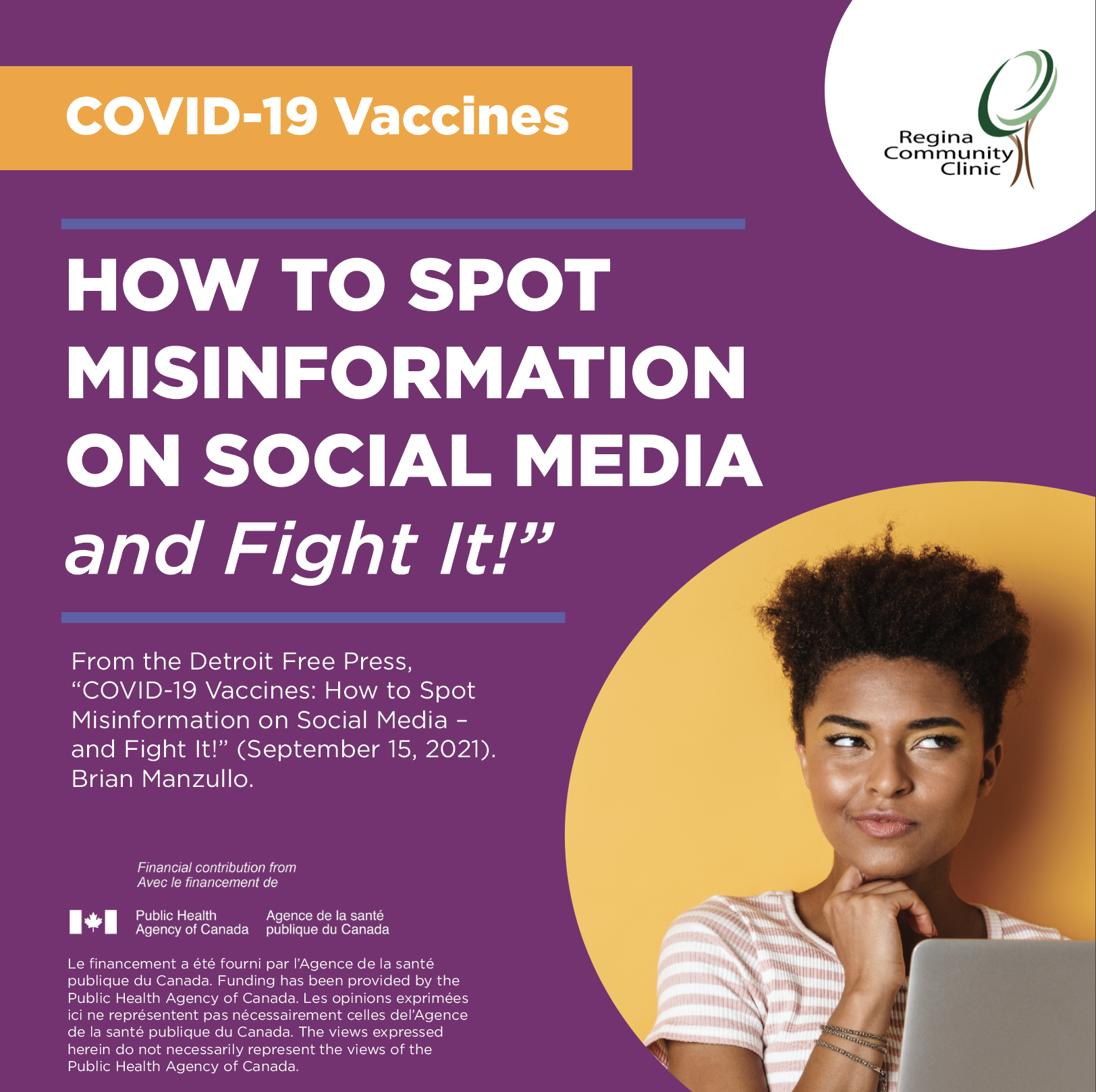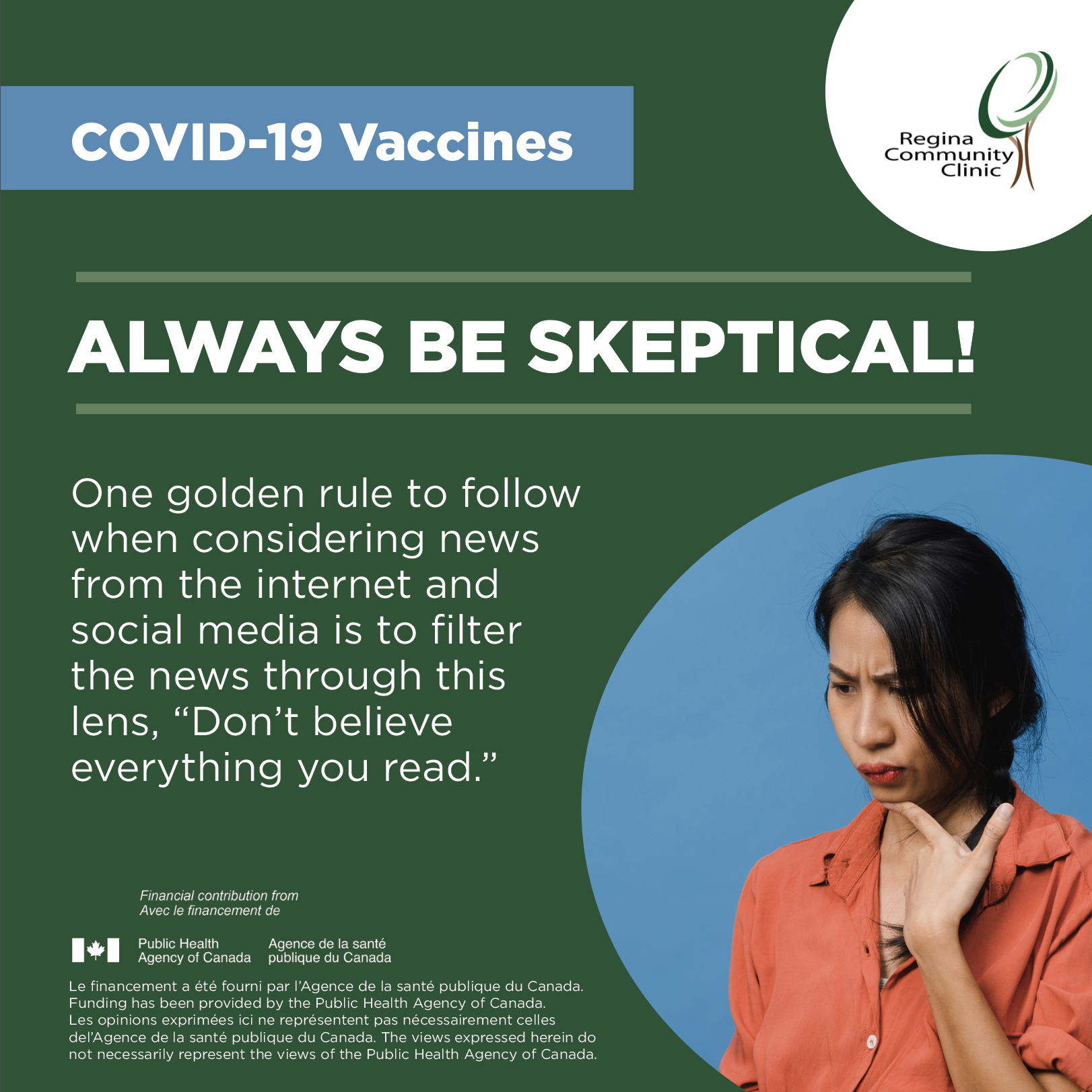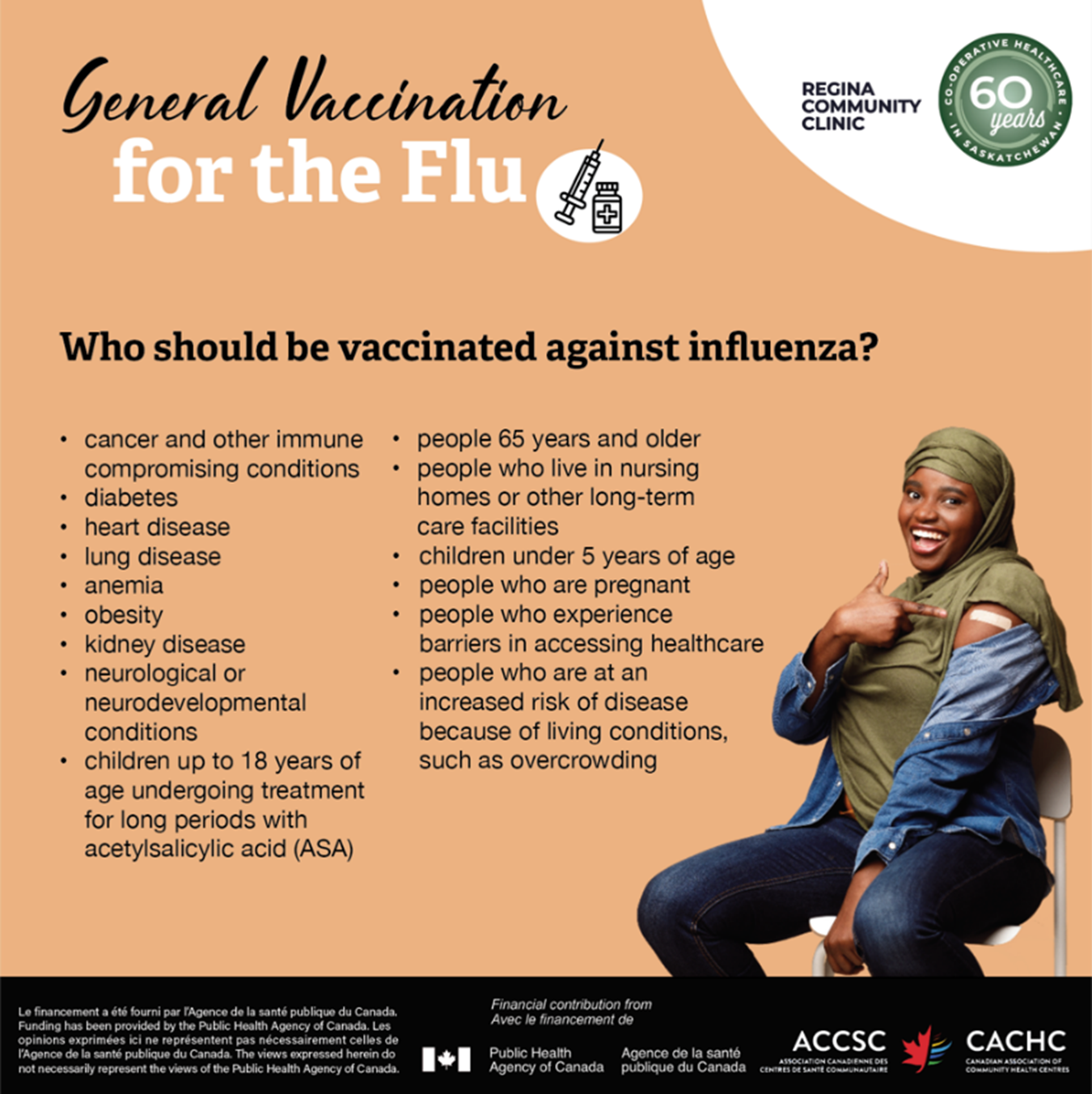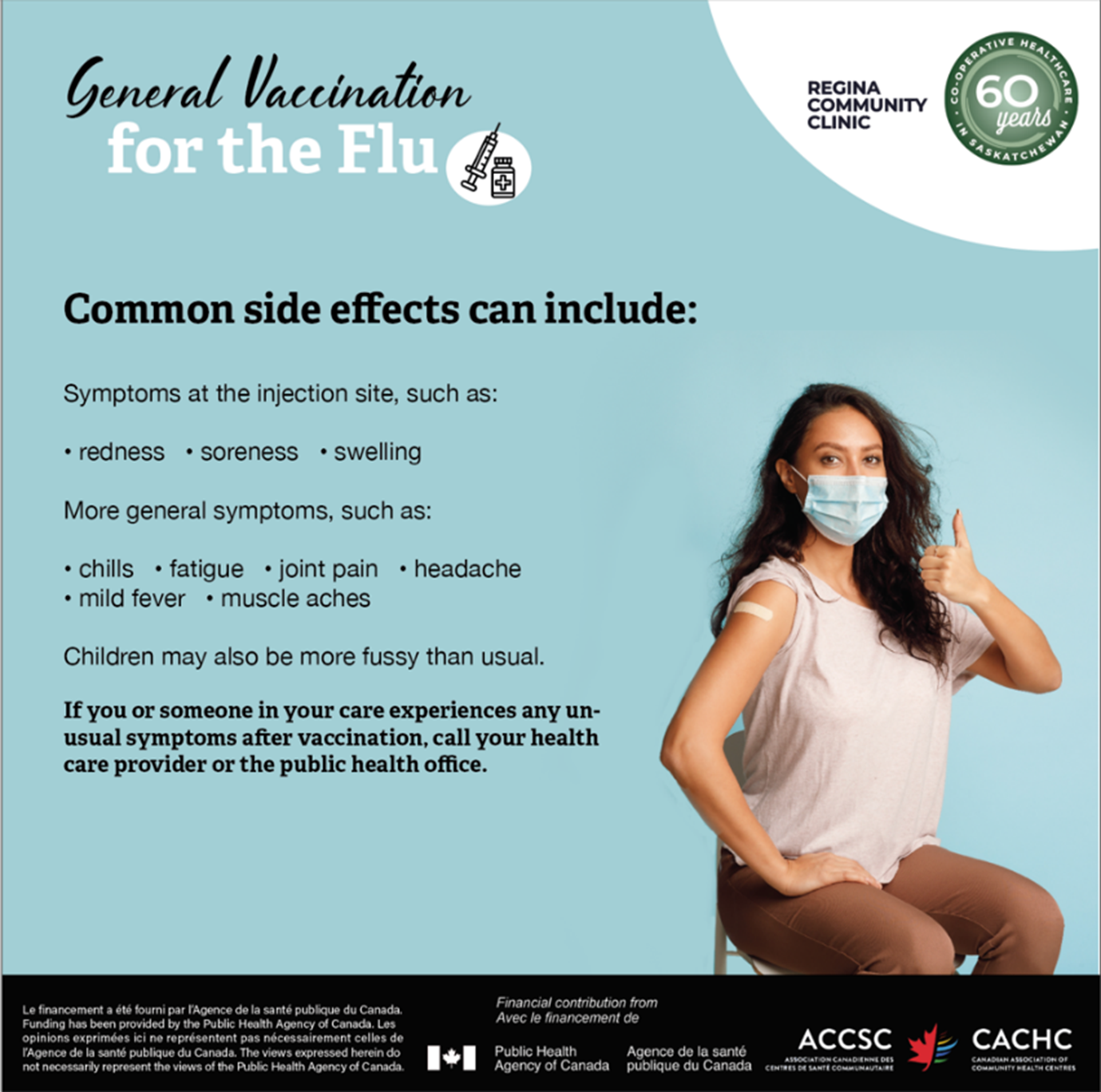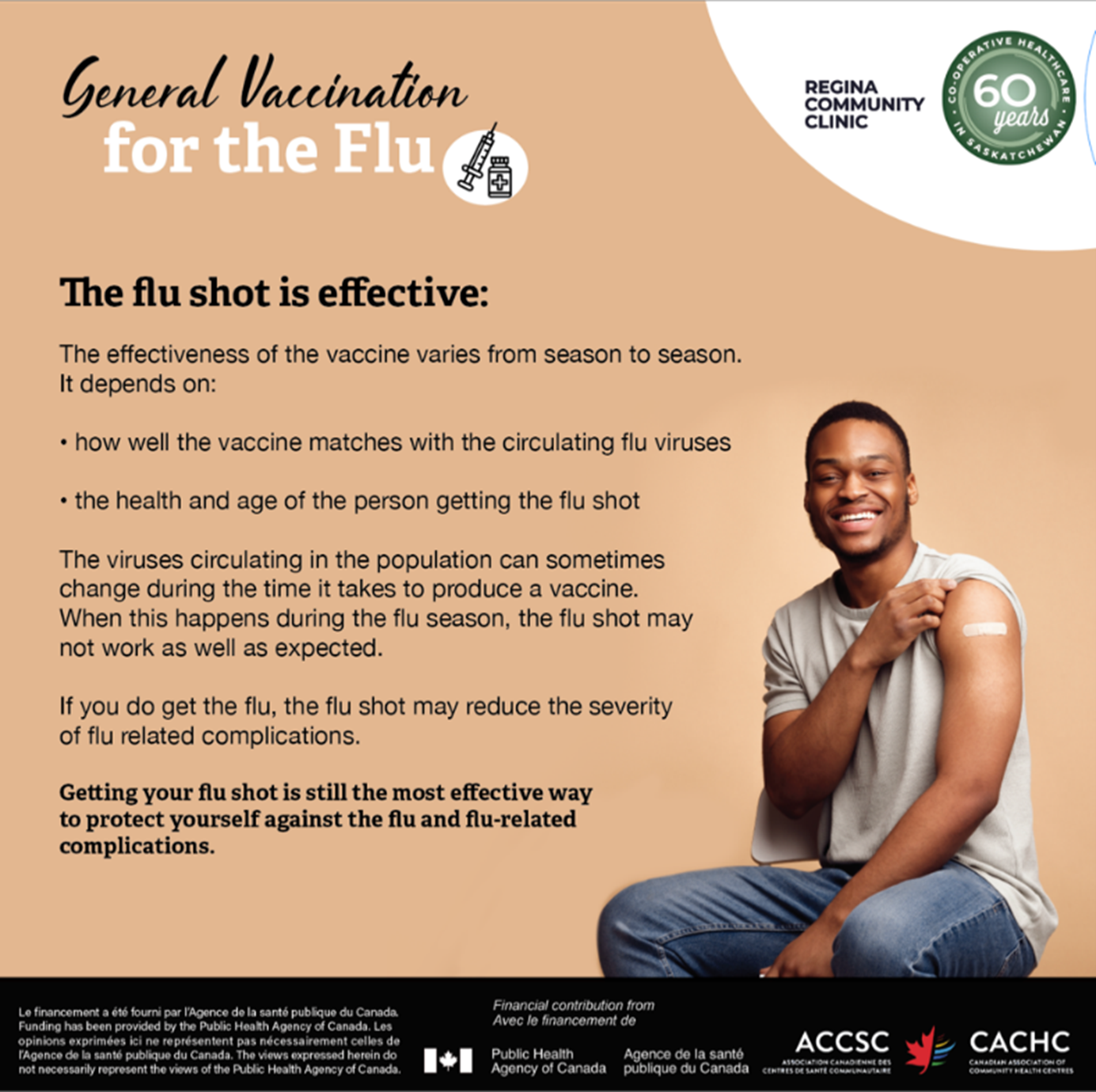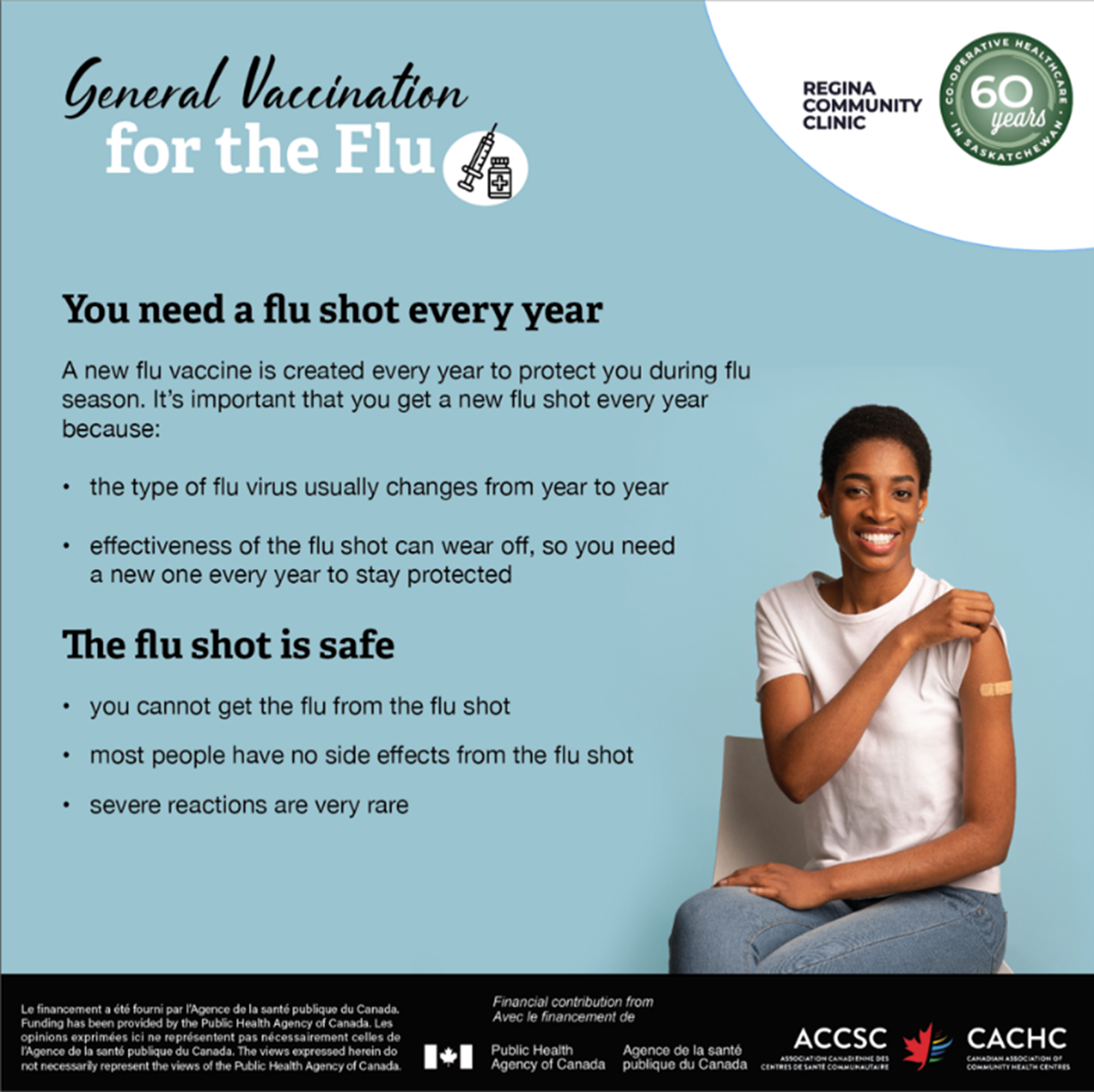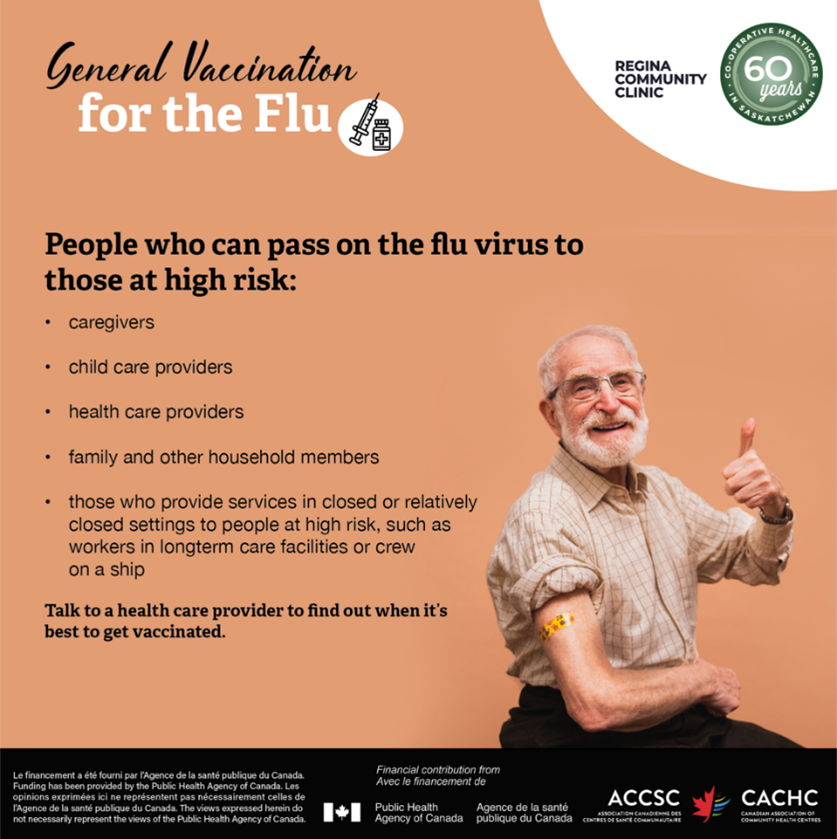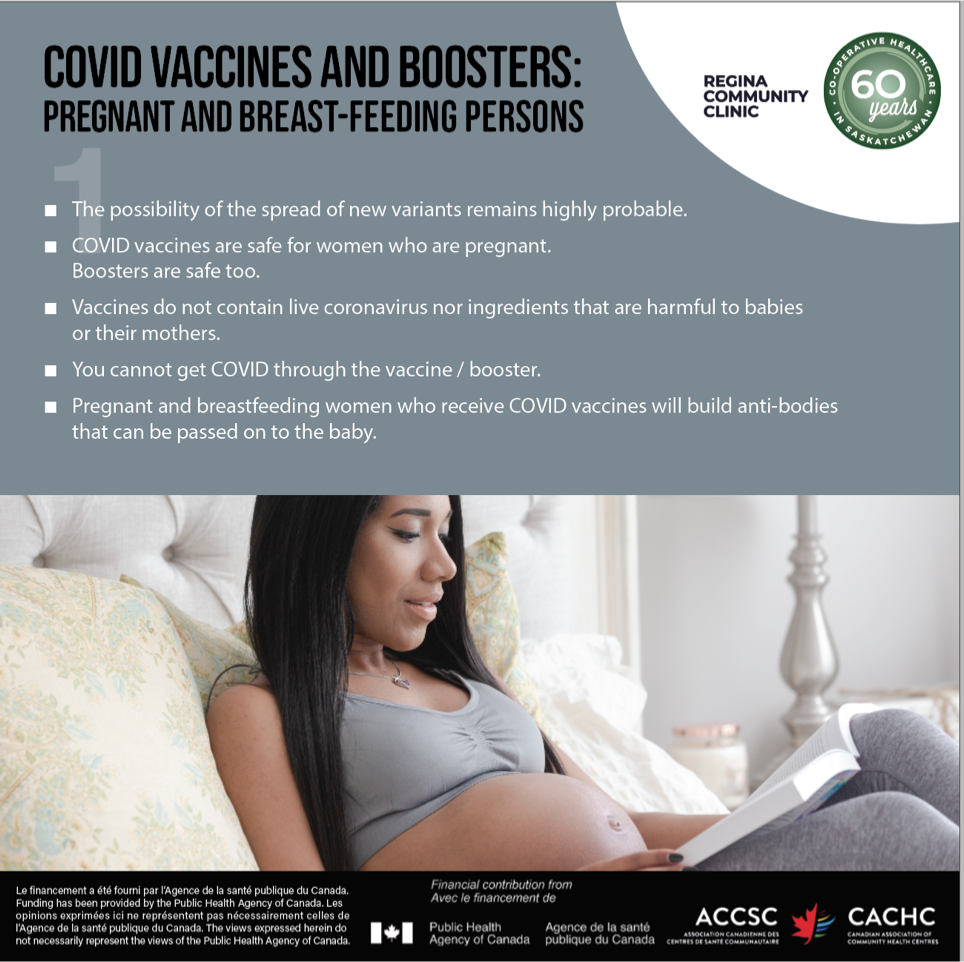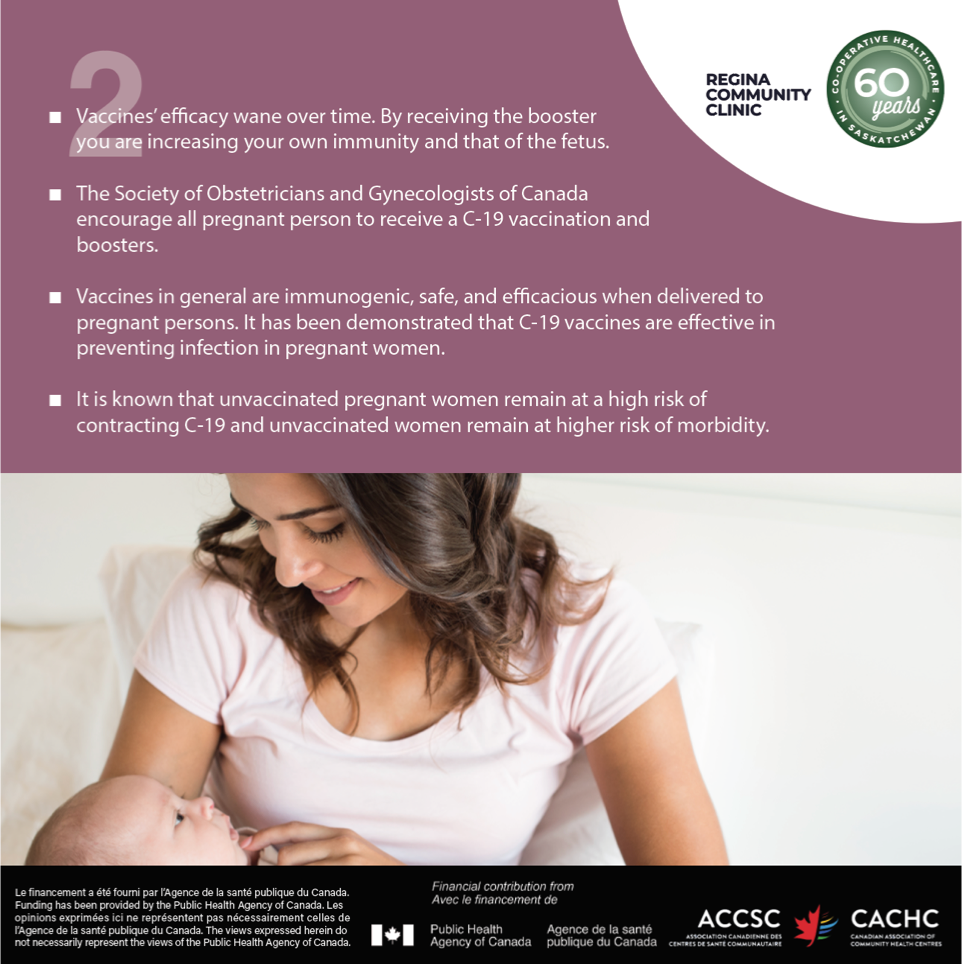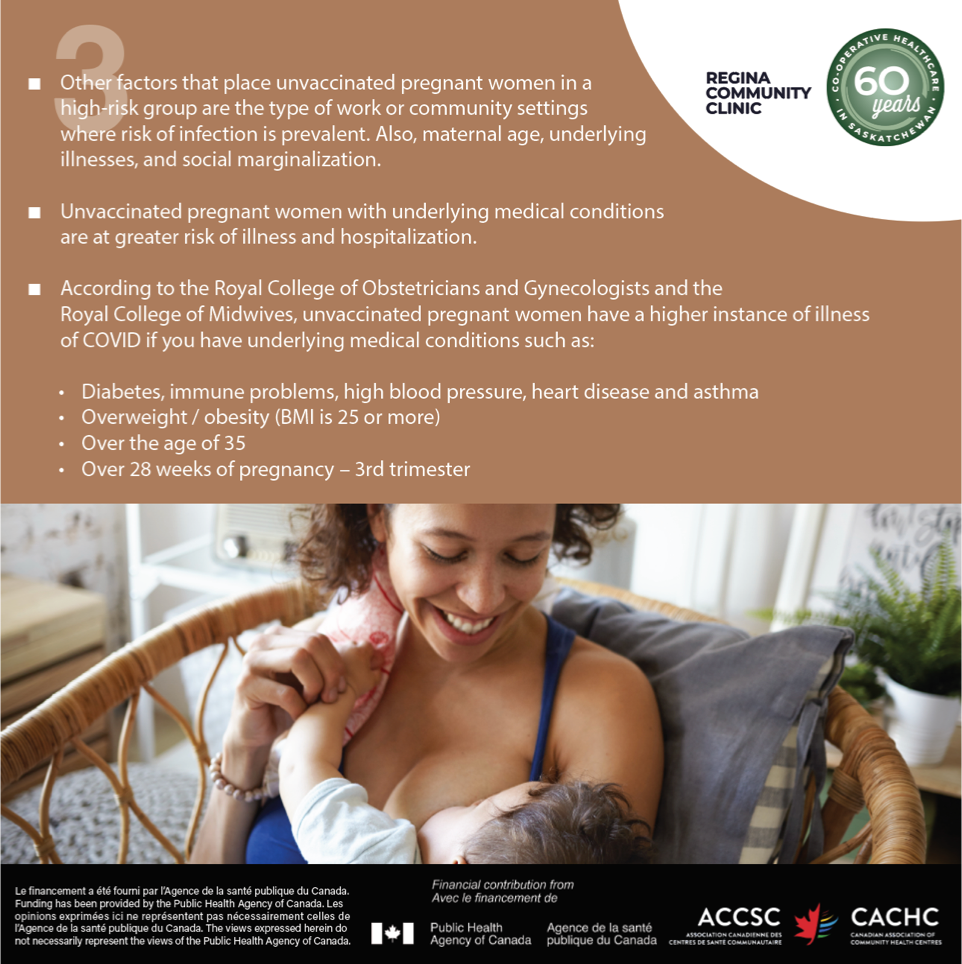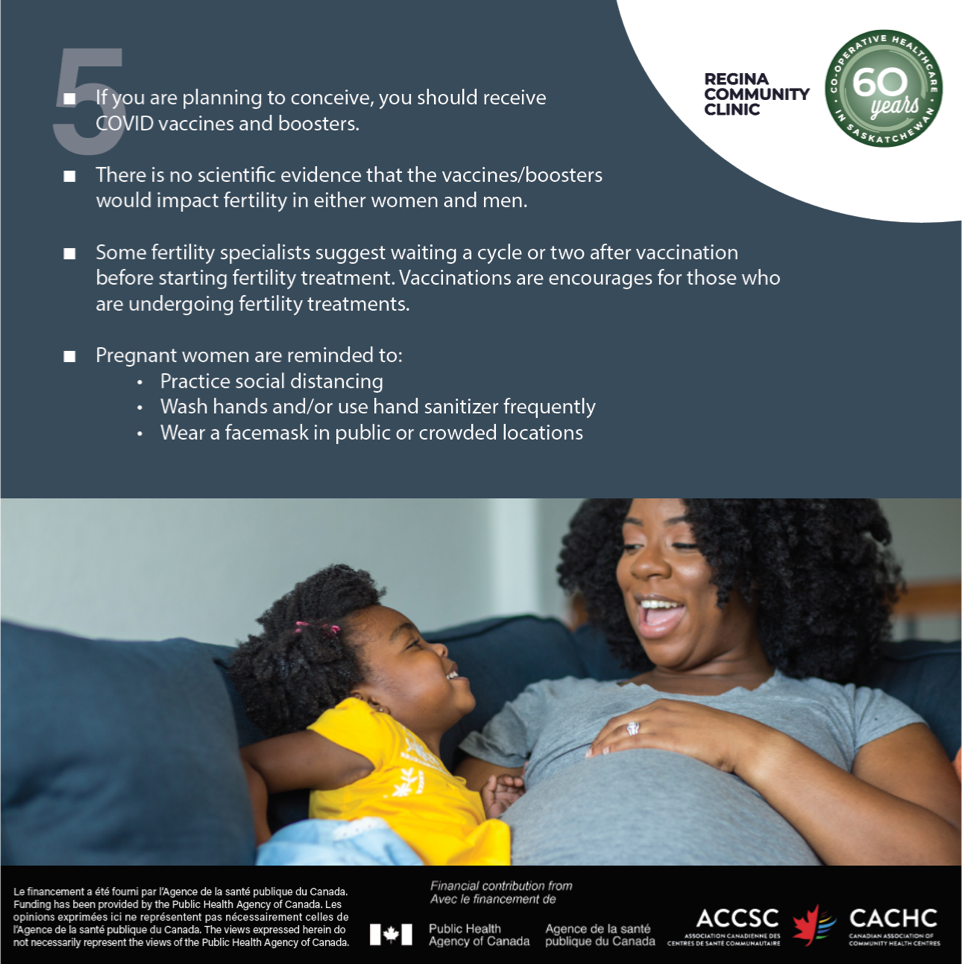COVID-19, FLU, shingles and pneumovac vaccinations are all available at the RCC.
Many types of vaccinations and injections are available at the Regina Community Clinic. To book an appointment please call the Nursing Department 306-543-7880 Option 6.
Vaccinations funded by Public Health - no fee or prescription is required:
- Tdap (Tetanus, Diphtheria, Pertussis)
- Td
- Pneumovax 23
- Flu (Influenza) Vaccine
- Moderna Bivalent
- *Mantoux Test (2 Steps) *non-clinic patients must pay for Mantoux Step1 $40 Step 2 $60
Vaccinations requiring prescriptions from a medical provider (patients must fill prescriptions at the pharmacy and bring medication to the injection appointment):
- Prevenar 20
- Hepatitis Vaccines (Havrix, Twinrix, Engerix-B)
- Depo-Provera
- Testosterone Injection
- Vitamin B12





